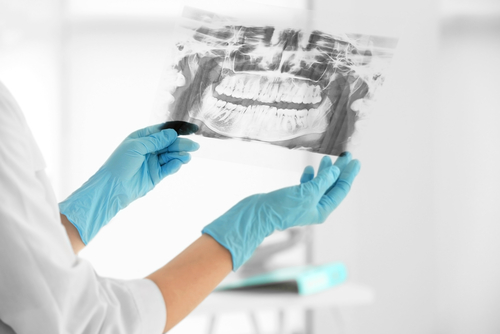Is good dental hygiene sufficient to care for your overall oral health? The truth is, even with at-home dental care, regular visits to the dentist are critical in maintaining your overall oral health.
Not convinced? Keep reading to find out five benefits of Pennsylvania dental care that can only be provided by a dentist.
- Deep Cleaning— You may feel as though you do a very thorough job of cleaning your teeth at home, but it still will not compare to the treatment provided by a dentist. Even if you follow all of the guidelines recommended by the American Dental Association, you will still need expert care every now and again.In particular, even with regular brushing and flossing, tartar may still build up on your teeth. Tartar is a hardened form of plague, a transparent layer of bacteria which builds up and coats the teeth in-between brushings. Once hardened, tartar is very difficult to remove. Regular dental visits ensure that this build-up gets removed frequently and does not interfere with your oral health.
 Fluoride Treatment— Fluoride is a mineral which strengthens the enamel of your teeth, making them more resistant to decay. Fluoride is added to most public drinking water and can also be found in many kinds of toothpaste and mouthwashes. While fluoride obtained from these sources is important, routine fluoride treatments from your dentist come at higher concentrations and provide you with an additional level of protection. This is especially beneficial if you are a person at an increased risk of dental decay. Those risk factors include:
Fluoride Treatment— Fluoride is a mineral which strengthens the enamel of your teeth, making them more resistant to decay. Fluoride is added to most public drinking water and can also be found in many kinds of toothpaste and mouthwashes. While fluoride obtained from these sources is important, routine fluoride treatments from your dentist come at higher concentrations and provide you with an additional level of protection. This is especially beneficial if you are a person at an increased risk of dental decay. Those risk factors include:
- Poor oral hygiene
- Active caries
- Infrequent dental care
- High levels of bacteria in the mouth
- And many others
A fluoride treatment is a simple and effective way to decrease your chances of developing dental decay regardless of whether you are at an increased risk. The procedure typically only takes a few minutes to apply the fluoride to the teeth and allow it to sit for a short time. The result is stronger, healthier teeth.
- Radiographs — Dental radiographs are an important part of both diagnostic and preventative dental care. Radiographs will show problems which need to be repaired— such as dental decay— but also potential future issues. By identifying these problems or risks at an early stage, preventative measures can be taken to avoid the development of serious dental complications. Radiographs are used to:
- Find cavities
- Look at the tooth roots
- Evaluate the health of the bony area around the tooth
- Determine if periodontal disease is an oral care issue
- Check the status of developing teeth
- Monitor good tooth health through prevention
- Oral Examination— When you go for regular Pennsylvania dental visits, you will receive an oral examination. During the exam, your dentist will evaluate your oral health. This includes:
- Evaluating overall health and oral hygiene
- Checking for risk of tooth decay, root decay, and gum or bone disease
- Evaluating the need for tooth restoration or tooth replacement
- Checking bite and jaw for problems
- Assessing your need for fluoride
- Taking dental X-rays or, if necessary, do other diagnostic procedures
- Feedback— After your examination, your dentist will let you know if there are any current or potential problems which need to be treated. It is always preferable to treat a problem at its earliest stage to avoid later complications. Additionally, she or he will be able to give you feedback on your oral health and what you can do to improve it. If you have questions about proper techniques or best practices for your oral hygiene, do not hesitate to ask.
Trust Penn Dental Medicine for Your Pennsylvania Dental Care
At Penn Dental Medicine, we provide quality care at affordable prices. As the dental clinic of the University of Pennsylvania School of Dental Medicine, we train the dentists of tomorrow. If you are in need of Pennsylvania dental care specifically in the Philadelphia region, consider Penn Dental Medicine for your next appointment. Contact us today!




